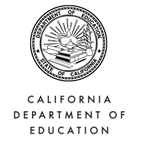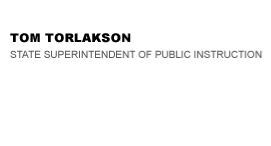Draft ESSA State Plan Public Comment Period Letter


Official Letter
Official Letter
Dear County and District Superintendents and Charter School Administrators:
PUBLIC COMMENT PERIOD FOR DRAFT OF CALIFORNIA’S EVERY STUDENT SUCCEEDS ACT STATE PLAN
This letter is to inform you about the upcoming public comment period for the first complete draft of California’s Every Student Succeeds Act (ESSA) Consolidated State Plan, and to ask that you to share this information with your school communities to encourage them to participate in the public comment period.
The Every Student Succeeds Act State Plan
The ESSA was signed into law by President Barack Obama on December 10, 2015, and goes into effect in the 2017–18 school year. The ESSA reauthorizes the Elementary and Secondary Education Act (ESEA), the nation’s federal education law, and replaces the No Child Left Behind Act (NCLB). The reauthorization of ESEA provides California with a number of opportunities to build upon the State’s new directions in accountability and continuous improvement.
As part of California’s transition to the ESSA, California must submit an ESSA Consolidated State Plan (State Plan) to the U.S. Department of Education (ED) in 2017. The State Plan will describe the State’s implementation of federal programs that support the State’s system of standards, assessments, accountability, and assistance programs.
In February 2017, as the repeal of the ESSA Accountability, Data Reporting, and Submission of State Plans regulations was being considered by Congress, ED signaled its intention to develop and make available a revised consolidated state plan template based solely on statutory requirements and designed to collect only “absolutely necessary” information. This new template, released on March 13, 2017, is more concise than previous versions and is organized by program, not by theme. Regulatory requirements are not included in the template, and several elements of the previous templates, including the sections on consultation and coordination, standards, and educator equity data, are no longer required.
California’s ESSA State Plan Guiding Principles
Given the new federal approach to collect only what is “absolutely necessary,” and at the request of the SBE, California’s State Plan has been written to meet, not exceed, federal requirements. It describes how California plans to use, manage, and monitor federal funds to support implementation of rigorous state academic standards consistent with California’s existing LCFF approach, providing the State maximum flexibility to utilize federal resources to effectively support California’s accountability and continuous improvement system.
California is committed to aligning state and federal education policies to the greatest extent possible to develop an integrated local, state, and federal accountability and continuous improvement system grounded in the Local Control Funding Formula (LCFF). This will promote coherence across programs to better serve the needs of local educational agencies (LEAs), schools, educators, and students; recognize the diverse and multidimensional characteristics of LEAs, schools, educators, and students, and provide support accordingly; and systematically and collaboratively identify and resource opportunities to build the capacity of local, regional, and state educators and leaders to better serve students and families.
At its January 2017 meeting, the California State Board of Education (SBE) unanimously approved the following guiding principles as part of a framework to develop a working draft of the State Plan.
- Ensure that state priorities and direction lead the plan with opportunities in the ESSA leveraged to assist in accomplishing goals and objectives.
- Create a single, coherent system that avoids the complexities of having separate state and federal accountability structures.
- Refresh applications, plans, and commitments to ensure that LEAs are evidencing alignment of federal funds to state and local priorities.
- Use the ESSA State Plan to draw further focus to California’s commitment to the implementation of rigorous state standards, equity, local control, performance, and continuous improvement.
- Leverage state administrative funds to realign CDE operations to state priorities.
- Strategically approach state-allowed reservations from Title programs to further state priorities.
Consistent with these principles, California’s draft State Plan has been written to meet statutory requirements in a way that furthers California’s actions to implement an effective education system that reflects a commitment to performance, equity, and continuous improvement. California intends to submit its State Plan to ED on September 18, 2017.
California State Plan Development Activities
States are required to consult with diverse stakeholders at multiple points during the design, development, and implementation of their ESSA state plans. The SBE and CDE are committed to ensuring a transparent transition to the new law and developing an ESSA State Plan that is informed by the voices of diverse Californians and have engaged in extensive stakeholder outreach throughout the development of the document. To date, the CDE has conducted three formal phases of ESSA State Plan stakeholder engagement.
- Phase I, which took place in June and July 2016, included several regional meetings, webinars, and a survey in which stakeholders provided input for what they would like to see in the State Plan related to stakeholder consultation, support for schools, support for educators, and support for a well-rounded education for all students.
- Phase II took place in November and December of 2016 and focused on public review and comment on the first draft sections of the ESSA State Plan. A toolkit and survey were made available to facilitate stakeholder responses during the review period.
- Phase III took place in February 2017 and included regional meetings and webinars in which stakeholders provided feedback on several of the specific policy decisions that need to be included in the State Plan.
The next formal opportunity to participate in plan development is Phase IV detailed below, which will include a 30-day public comment period on the first complete draft of the State Plan. In addition to this formal public comment period, stakeholders are encouraged to submit comments, questions, recommendations, or letters concerning the ESSA State Plan at any time to the CDE by e-mail at ESSA@cde.ca.gov. Stakeholders are also encouraged to provide public comment during the following California Practitioners Advisory Group (CPAG) and SBE meetings in which the ESSA State Plan will be discussed:
- June 1, 2017: CPAG Meeting
- July 12–13, 2017: SBE Meeting
- August 25, 2017: CPAG Meeting
- September 13, 2017: SBE Meeting
Stakeholder Engagement - Phase IV
With the approval of the SBE, CDE staff will conduct the required 30-day public comment period for the draft State Plan. The public comment period is scheduled to begin on May 22, 2017, and continue through June 30, 2017.
California’s ESSA State Plan is scheduled to be made available as a full draft for public comment May 22, 2017. When the public comment period begins, all members of the public are encouraged to review the Phase IV Toolkit, which will include the complete draft plan, videos explaining the contents of the plan, a facilitator guide, and the public comment survey. The Phase IV Toolkit will be available May 22 at http://www.cde.ca.gov/re/es/essaopptopart.asp.
During the public comment period, CDE staff is collaborating with county offices of education (COEs) and education organizations to host regional and online stakeholder meetings to review the contents of the draft State Plan and the public comment process. Below you will find information for these stakeholder meetings, including links to registration.
| Date/Time | Location | Registration Information |
|---|---|---|
May 25 |
Lake County Office of Education |
https://lcoe-essa-state-plan.eventbrite.com |
May 30 |
Sacramento County Office of Education Conference Center, Suite 100 3661 Whitehead Street Rancho Cordova, CA 95655 |
https://scoe-essa-state-plan-am.eventbrite.com |
May 30 |
Sacramento County Office of Education 10474 Mather Blvd, Mather Room Mather, CA 95655 |
https://scoe-essa-state-plan-pm.eventbrite.com |
June 5 |
Stanislaus County Office of Education 1100 H Street Modesto, CA 95354 |
https://stancoe-essa-state-plan.eventbrite.com |
June 7 |
San Diego County Office of Education 6401 Linda Vista Road San Diego, CA 92111-7319 |
https://sdcoe-essa-state-plan-pm.eventbrite.com |
June 8 |
San Diego County Office of Education 6401 Linda Vista Road San Diego, CA 92111-7319 |
https://sdcoe-essa-state-plan-am.eventbrite.com |
June 12 |
Alameda County Office of Education |
https://acoe-essa-state-plan.eventbrite.com |
June 14 |
Los Angeles County Office of Education 9300 Imperial Hwy - EC 281 Downey, CA 90242 |
https://lacoe-essa-state-plan-pm.eventbrite.com |
June 15 |
Los Angeles County Office of Education 9300 Imperial Hwy - EC 281 Downey, CA 90242 |
https://lacoe-essa-state-plan-am.eventbrite.com |
Please promote these events with your school communities by posting or distributing the attached event flyer. Other COEs, districts, schools, community-based and civil rights organizations, and all other interested educational stakeholders are encouraged to host stakeholder meetings for the constituents they serve. Suggestions and tools will be available in the Phase IV Facilitator Guide on May 22.
Additional meetings and webinars will be announced as they become available. Interested stakeholders are encouraged to join the CDE ESSA listserv to be notified of these events by sending a blank e-mail message to join-essa@mlist.cde.ca.gov.
The most current information regarding California’s transition to the ESSA is available on the CDE ESSA Web page at http://www.cde.ca.gov/essa. If you have any questions regarding the contents of this letter, please contact the CDE ESSA Office by phone at 916-319-0843 or by e-mail at ESSA@cde.ca.gov.
Sincerely,
/s/
Tom Torlakson
TT:bm
Attachment: Event Flyer (PDF)